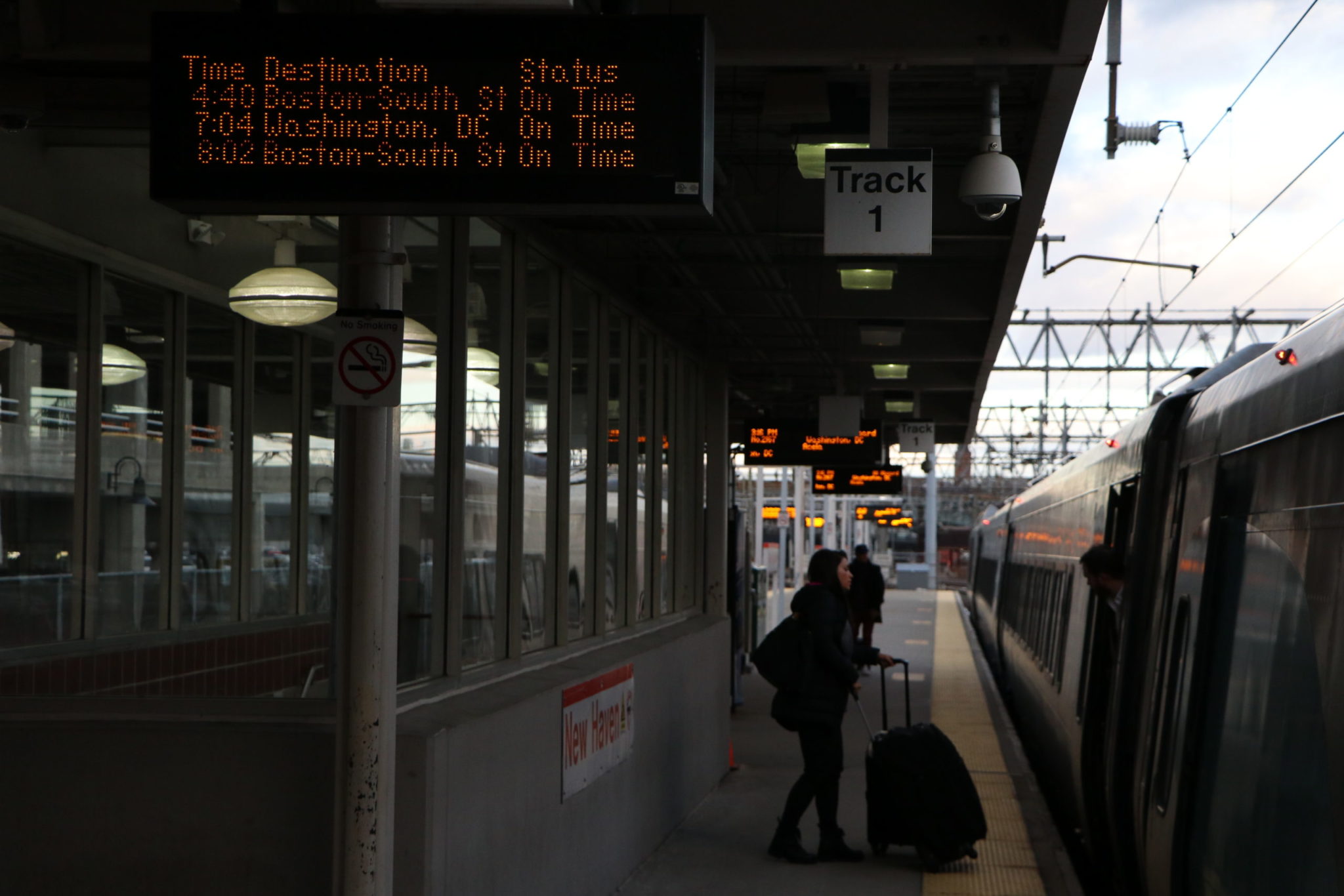Negotiations over future of Union Station nearing conclusion
A new 35-year lease is in sight for New Haven Union Station as local and state representatives are nearing the conclusion of negotiations.

Vaibhav Sharma, Photo Editor
In 2017, former mayor of New Haven Toni Harp told WNHH radio that the city would like to own New Haven Union Station. However, negotiations since then between the city of New Haven and Connecticut seem unlikely to end in New Haven owning Union Station. Still, city officials now expect greater transparency regarding the operations of the station and its future infrastructure developments over the next 35 years.
Representatives from New Haven and the Connecticut Department of Transportation have now tentatively agreed to terms for a 35 year lease of New Haven Union Station — a station that carried as many as four million passengers annually before the pandemic. The new lease is set to begin in July of 2022 and comes after extensive discussions that are closely connected to New Haven’s “Hill to Downtown Community Plan,” an economic development plan originally composed in 2014. Michael Piscitelli, the Economic Development Administrator for New Haven, said he views Union Station as the “linchpin” for the Hill to Downtown Plan.
“The goal of the negotiations is to reimagine [New Haven] Union Station for the next 35 years,” Doug Housladen ’04, head of the New Haven Parking Authority, told the News. “We’re really anticipating federal dollars to support the private dollars that will be here, as well as state dollars if needed.”
The organizational structure of the station will remain relatively unchanged in the new lease. The station is still owned by the state of Connecticut, which they lease to New Haven. New Haven subcontracts the maintenance and staffing of the station to the New Haven Parking Authority.
According to Amtrak’s 2019 data fact sheet, New Haven Union Station is the busiest Amtrak station in Connecticut. Lines from Amtrak, MTA-North and CT-Rail have stops at the station, and several buses offer service.
“There should be housing put in and some more development [surrounding the station]. It shouldn’t be left open, like it is now,” said Evan Brooks of Newtown, Connecticut.
Brooks said he passes through Union Station often, and criticized the long lines of cars from ride-share services outside the station. He said that building a new parking garage outside the station could be a solution to this problem.
During negotiations, representatives from New Haven and the state of Connecticut agreed to construct a 600 space parking garage with additional amenities and services at the site. This garage would increase parking capacity and build some “vertical development” near the station, Piscitelli said. He noted that the new developments will allow private companies commercial access to about four million people a year, following the station’s expected return to pre-pandemic ridership.
“We wanted to make sure that [the area around Union Station] wouldn’t be overloaded just with parking, but that it had services and amenities for the neighborhood and attracted development as well,” Piscitelli told the News.
Kafi Rouse, spokesperson for the Commissioner’s Office of the Connecticut Department of Transportation, expressed support for developing commercial infrastructure in the area around Union Station.
“Union Station’s customers have been the center of our Union Station negotiations with the City of New Haven,” Rouse told the News. “We are working to ensure Connecticut’s railroad stations center the needs of the communities they serve and the plans for Union Station serve as a prime example of accessibility.”
Hausladen said he imagines Union Station becoming the center of multiple growth districts in the city, referring to the Downtown and Long Wharf neighborhoods. An important facet of the new lease, according to Hausladen, is the collaboration between city and state to “entice developers into a public-private partnership.”
Currently, the station has a Subway and a Dunkin’ Donuts, but Hausladen suggested that more options should be available to the station’s many customers.
Piscitelli agreed, and said that Union Station is no longer just a commuter station into New York but it is also a “welcome mat” for New Haven and Connecticut. Piscitelli said also he hopes to see more New-Haven themed features of the station.
Currently, infrastructure bill H.R. 3684 is moving through the United States Congress. If passed, the bill will likely provide funding for local projects around the country. Piscitelli said that one of the city’s requests for funding under that law would be related to Union Station.
New Haven’s Union Station first opened in 1920.
Interested in getting more news about New Haven? Join our newsletter!








